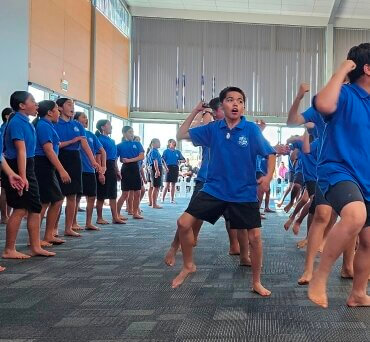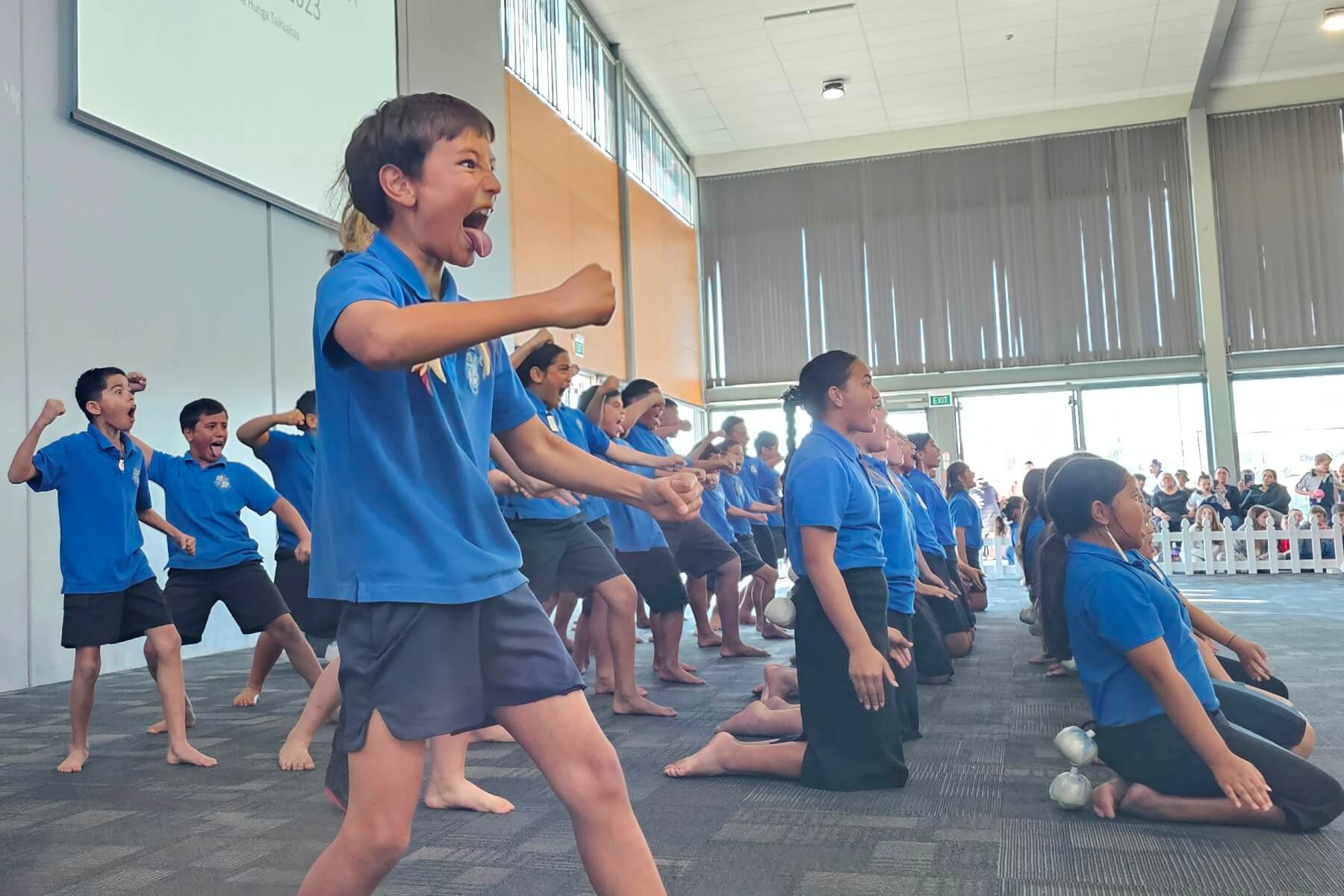
Kapa Haka Festival, Cambridge 2023
I recall as a young fella watching the All Blacks performing the haka in the 1950’s; 60’s, 70’s… they were all arms and legs flailing wherever, and so unco.

Tom Roa
Come the Buck Shelford era and the proverbial light bulb lit up above their heads – there was a significance to this ‘dance’. Or maybe Buck lit a fire in their hearts which sparked off their inherent ‘mana’. The haka had grown into something that became synonymous with All Black (and rugby in New Zealand) pride.
I marvelled in particular at how Pākehā team members gave the haka their all. The ihi, the wehi, their stunning performance of the haka causing the hackles to rise at the back of the neck. The haka’s role in All Black mana became crystal-clear, not just in Aotearoa-New Zealand, but just as importantly on the international stage such that rugby (in Aotearoa-New Zealand anyway) is now synonymous with the haka.
And almost every team has its own haka – men’s and women’s teams, at all age groups.
This is so much now a feature of us as Kiwis. New Zealanders of all shapes, sizes, ages, ethnicities are prone to do a haka at the drop of a hat. And it’s not a mere flailing of the arms and legs, hither and thither. I dare say that many impromptu haka would do well on the Matatini stage with the most expert performers at the kapa haka elite level challenged by the expertise in these spontaneous performances.
This expression of pride, of mana, is more than palpable.

Ngāti Hauā performed a rousing set including this haka. Photo: Mary Anne Gill.
So it should be no surprise to anyone that the expression of that mana includes commentary beyond that of the competition at immediate hand. The assertion by many of us that politics and sport must not mix was surely laid to rest with the 1981 Springbok tour and the effect on our misconception that we enjoyed in Aotearoa New Zealand the most harmonious of race relations in the world. Few in New Zeaand at that time paid any heed to the simmering of dissatisfaction with a Government who were misreading the mood of the time. Civil unrest in all of the centres hosting the Springboks shook the country to its core.
Here in Hamilton in particular the invasion of Rugby Park leading to the cancellation of the Waikato vs South Africa game is still fresh in the mind of many who were there that day – on both sides.
The Hurricanes Poua womens’ rugby team gave voice to a similar simmering of discontent with a Government who appear to be misreading the mood of the ordinary New Zealander. The three hui calling for unity earlier this year must be given their due attention. And the stance taken by these ‘wāhine toa’ reflects the stance taken by Dame Hinewehi Mohi in her rendition at Twickenham of the National Anthem in Māori, met by a storm of protest by those who misread the mood of the country at that time … which now sees the Māori Language version being heartily sung alongside the English – joyously, even gleefully.
In 1990 Justice Sir Paul Temm wrote of what he saw as two vital attributes of our society – the extraordinary patience of Māori New Zealanders and the tremendous sense of fairness of Pākehā New Zealanders. This ‘truth’ in 1990 was Sir Paul’s asserting his belief in a positivity of that time, with all its challenges.
I would like to believe that we can and should say the same today








